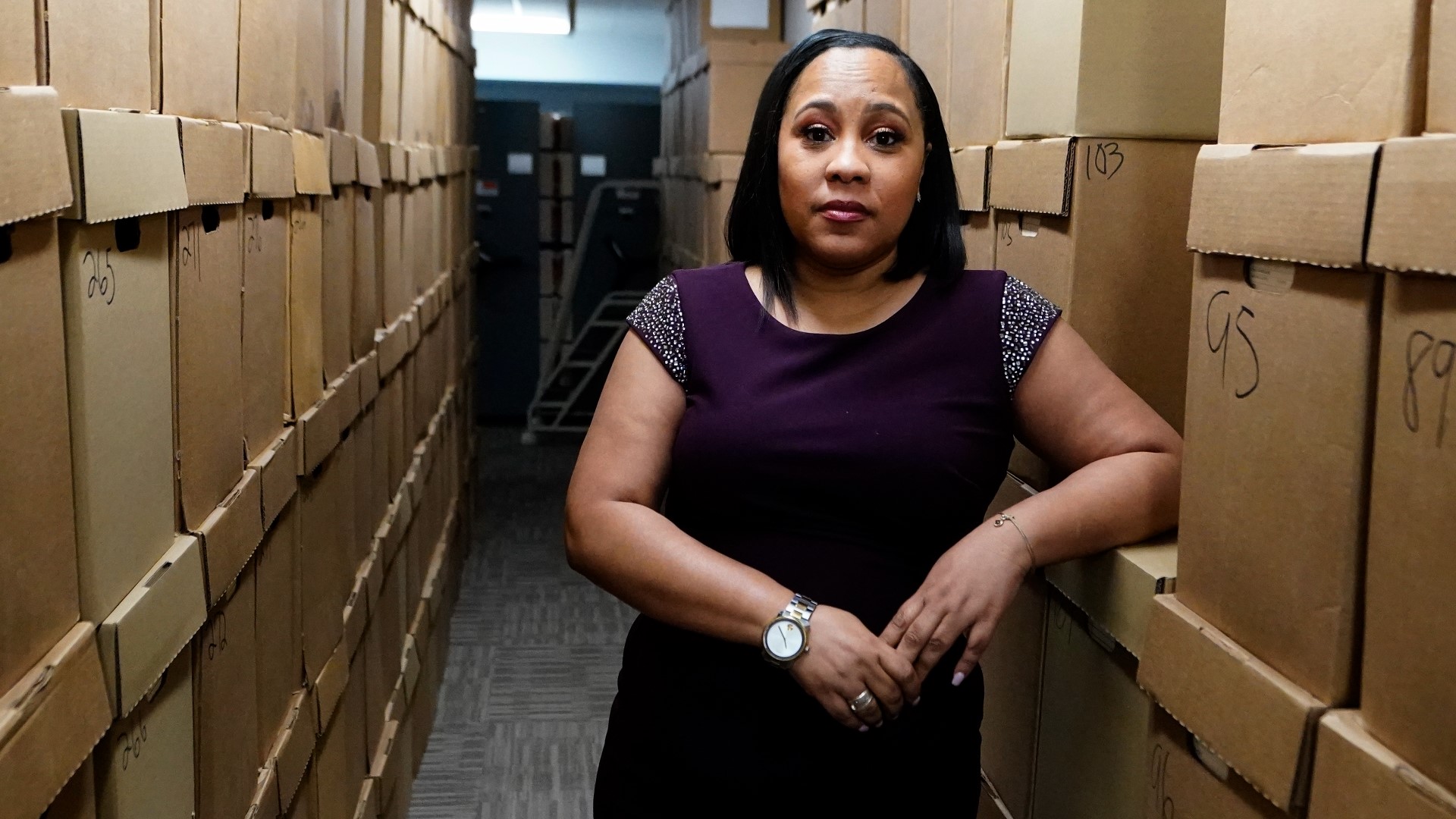ATLANTA — A hearing was held Thursday on motions challenging Fulton County District Attorney Fani Willis on two fronts in her special grand jury probe of former President Donald Trump's efforts to interfere in Georgia's 2020 election results.
The hearing produced only a partial resolution on those challenges, with Judge Robert C. I. McBurney ruling in Willis' favor on one matter while leaving open, for now, the more consequential challenge to have her disqualified from the probe.
McBurney said he would issue a written order on that matter later, while denying a motion by lawyers for Georgia Sen. Burt Jones and, separately, 11 others who were looking to have have the judge rule that they need not be forced to appear before the grand jury.
Here's what those two decisions mean, and what else we learned from Thursday's hearing:
New developments in the Fulton County Trump probe
- 12 individuals who were looking to have their subpoenas quashed were denied.
The 12 included Georgia Sen. Burt Jones and 11 others who have received target letters informing them they could be indicted under the special grand jury investigation.
All took part in the "alternate electors" scheme in the 2020 election in which Republicans in several states, including Georgia, submitted illegitimate electoral college votes in favor of former President Donald Trump.
Their lawyers tried to argue that since they have been informed they're targets of the investigation, rather than cooperating witnesses, there was virtually no question they would answer before the special grand jury for which they wouldn't invoke the 5th Amendment, and so they shouldn't be forcefully "frogmarched" to appear before the panel.
Judge McBurney said even if they were to invoke the 5th Amendment for something as simple as their own name, he would still want them to come before the special grand jury and do that. He directed the defense lawyers to meet with the District Attorney's Office to review each individual and see if there were any subject at all they might be able to speak on.
- Whether Willis will actually be disqualified was left unresolved.
Lawyers for Jones - the Republican nominee for lieutenant governor in Georgia this year - argued that she created a conflict of interest when she held a fundraiser for Democratic lieutenant governor candidate Charlie Bailey.
As one attorney argued, the fundraiser - coupled with the news of Jones receiving his target letter weeks alter - showed Willis has a "dog in the hunt" in the lieutenant governor's race.
Her lawyers argued that only created an appearance of a conflict and said it did not meet the legal standard of an actual conflict. They also noted that fundraiser was held during the Democratic primary runoff for Bailey against Kwanza Hall, not the general election.
Judge McBurney appeared extremely skeptical of the argument that she should be disqualified entirely.
But he did side with the argument that it created a bad appearance of a conflict, calling it a "what were you thinking?" moment.
"It's not a lower-case 'a' appearance, it's like a capital 'A' with flashy lights," he said. "That's problematic."
He appeared open to trying to find some kind of remedy, saying he would put forth his final decision in writing.
In particular the judge appeared open to the suggestion he could disqualify Willis from further investigating the "alternate electors" matter chiefly concerning to Sen. Jones - effectively spinning off a second investigation, with a second special prosecutor.
"Your creative idea is if I determine that there needs to be disqualification, it could be not as to individuals but as to subject matter - and so this question of an alternate slate of electors, if that is something that needs to be further investigated, create a separate entity to do that, that's not supervised by this district attorney?" McBurney asked Jones' attorney, who responded yes that was the idea.
"Hm, okay," he said.
- The probe almost certainly won't be complete until after the November elections.
In multiple instances, Judge McBurney stated his position that he did not want the conclusion of the special grand jury's work and the production of its report - including whether to recommend indictments - to be an "October surprise" that might impact the November elections.
He stated explicitly more than once he would hold off on releasing the report until after the elections if it is produced around that time.
"If the work is completed such that it lands on or near the election, it will stay completed and in my office until it gets disclosed after the election," he said.
More likely than anything, the grand jury won't be finished by that time anyway - they're authorized to work through May 1, 2023. But if they somehow do finish early, McBurney gave every indication we won't learn what they've found until at least after November 8.

